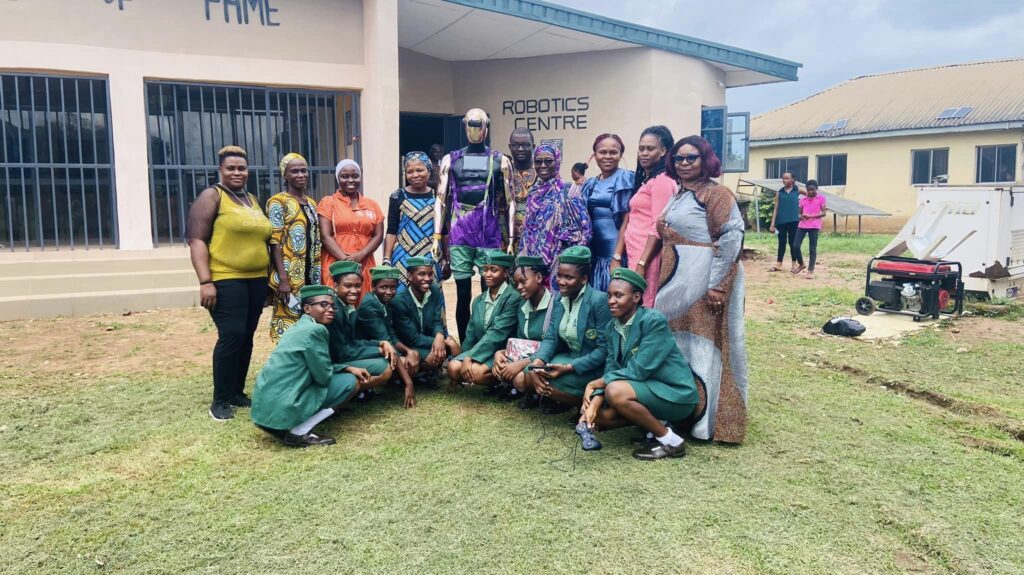As of 2023, more than 110.7 million Nigerians were below 18 years of age, with about 36 million of these children being five or younger.
But despite constituting roughly half of the country’s large population, Nigerian children are constantly dealt bad hands. Incoherent policies, unsafe school environments, and harmful cultural practices. Then we have poor nutrition just one of the constant struggles they must grapple with on their journey to adulthood.

Yet, despite the odds stacked against them, Nigerian children have demonstrated a remarkable resilience that could only have come from them. Successes in international competitions and engagements are not uncommon. More importantly, some of their technological innovations have put the country on the map.
Despite scarce resources, an asphyxiating environment, and limited support, young Nigerians are bringing about change through creativity and determination. By embracing technology, they are developing solutions that address local problems. From mobile applications that improve agricultural practices to solar-powered devices that provide electricity in remote areas.
This innovative spirit shows their potential to drive the country forward. A prime example of this can be found at the Federal Government Girls’ College (FGGC) Sagamu. Where a group of schoolgirls built a robot called Okikiola-Sagamu, also known as Kiki-Saggy, using artificial intelligence and machine learning.
READ ALSO: How school girls at FGGC Sagamu built an AI Robot called ‘Kiki-Saggy’
The project, which involved 10 schoolgirls from junior and senior classes and a few staff members, took seven months to complete. According to the students, the AI robot can walk, talk, and gesticulate.
While building the robot, the team faced technical, financial, software, and hardware issues. However, overcoming these challenges led to valuable learning experiences and rewarding outcomes. Kiki-Saggy was their first successful trial; previous robots did not make it to the final stage.
The initial fanfare that greeted the girls’ unveiling with Kiki Shaggy is only but a fillip for more success. A video FGGC posted on its Facebook page in December 2023 showed the girls talking to their mates about their plans.
One thing stood out in the video: the hunger to improve Kiki Shaggy. “It is not perfect yet. It is still a work in progress,” one of the girls said.
The statement is an indication of the elite mentality the girls have imbibed and why they can create a robot like Kiki Shaggy.
Unfortunately, there are hundreds of thousands of Nigerian school children whose dreams of being science and technology geniuses have been stillbirth by their environments.
Many of them may never enjoy quality education like the FGGC girls. For every member of the Kiki Shaggy team, there are tens of children who are roaming the streets.
Where their next meal will come from is uncertain. But this is not just about food: it is how Nigeria is deliberately sabotaging its future. It is a sad commentary on how Nigeria treats her children and how she deadens their drive for success.
As the Yoruba proverb says, “An untrained child may end up selling the family heirloom.” A country trifling with about half of its population is hardly prepared for its future. Still, the FGGC Sagamu girls are a reminder that Nigeria is not bereft of talents that can better its future.












